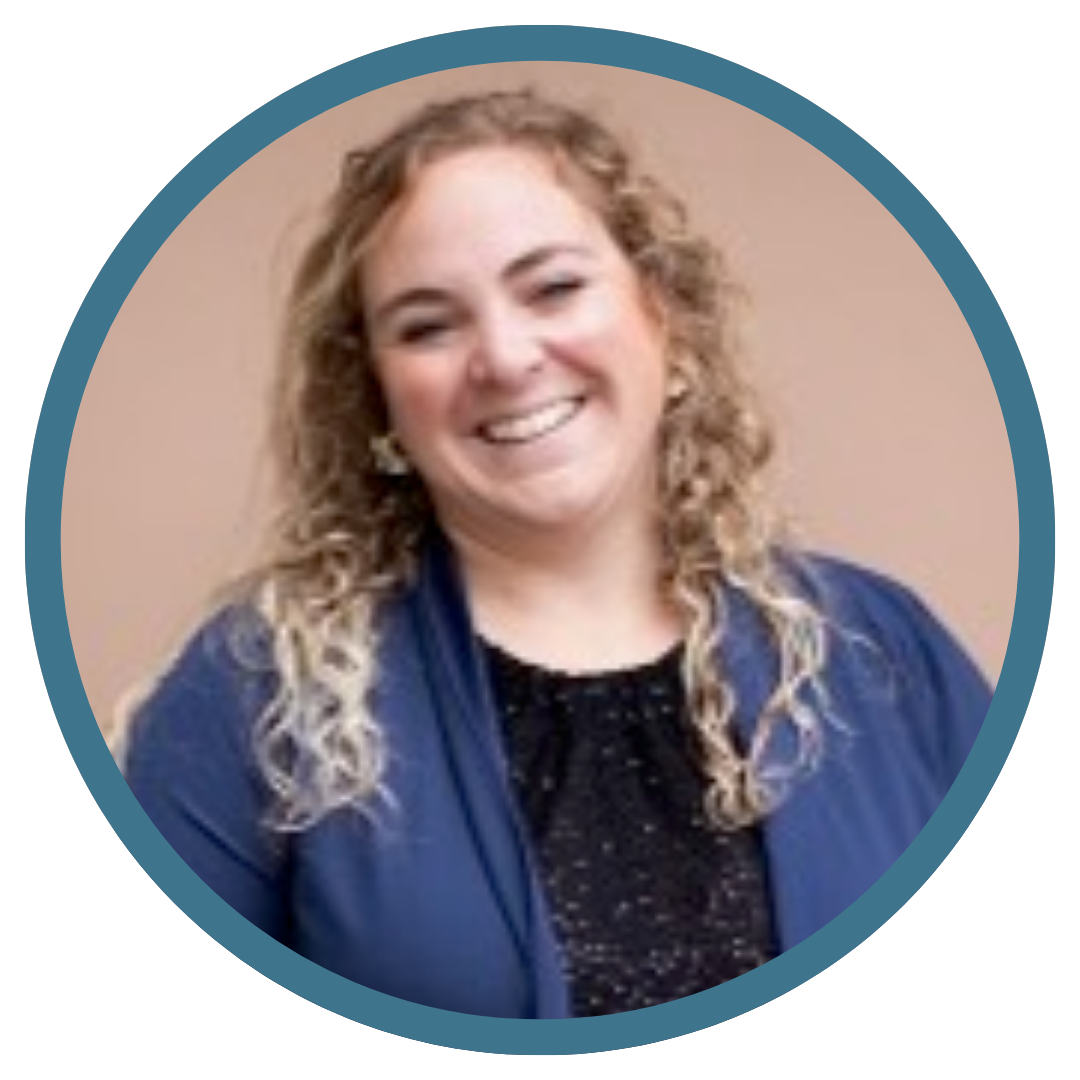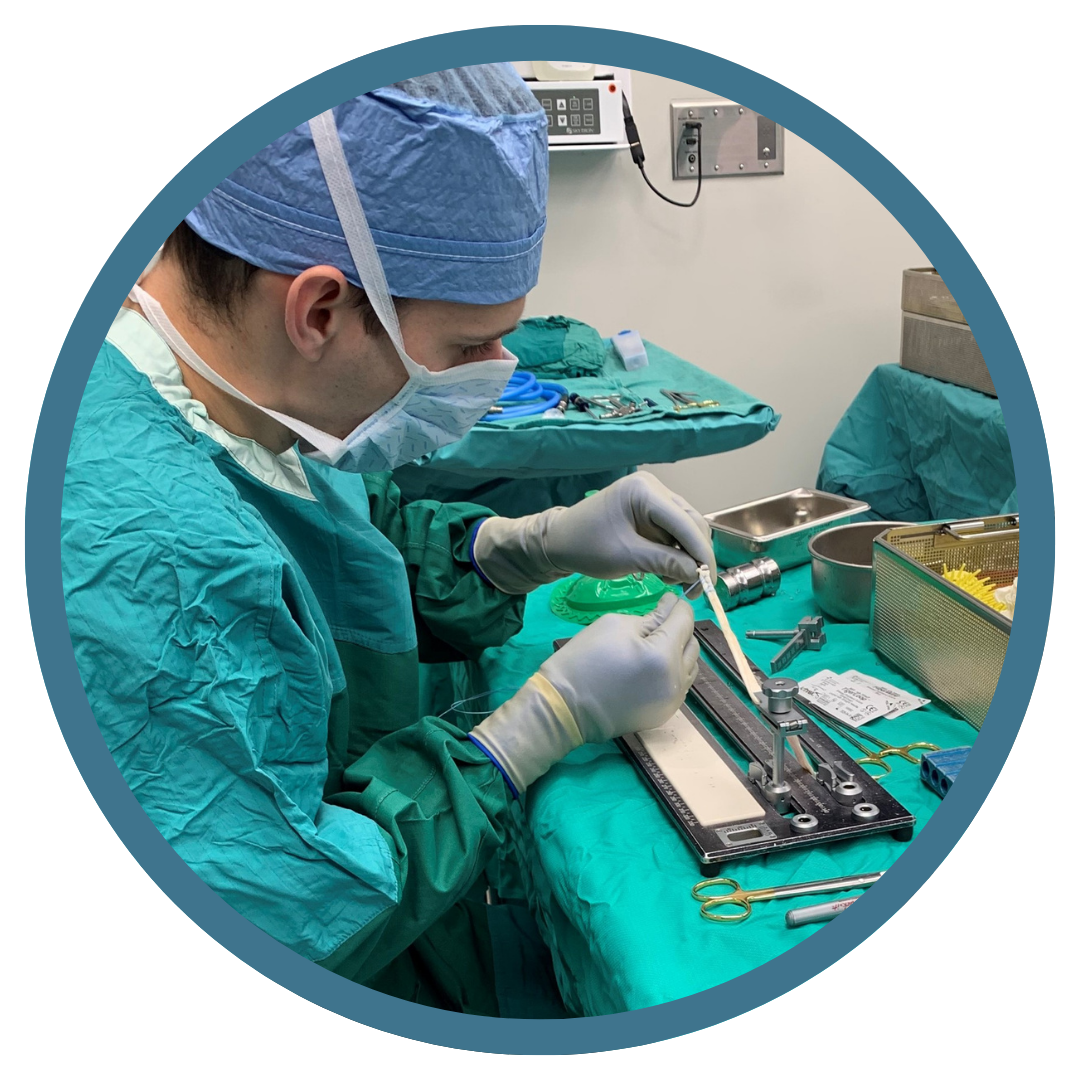Residency & Fellowship Features

Meet Clarissa Alexander
Clarissa Alexander who completed her athletic training residency at St Luke’s (ID), a CAATE-accredited athletic training residency program. Clarissa is passionate about her residency experience and shared the following insights:
Q: What factors influenced your decision to pursue a residency program?
A: I have worked in both the secondary and collegiate settings for multiple years prior to starting this residency program. I was really burnt out and needed a new challenge which I thought would be medical school. After talking with my support system, an opportunity arose to join the residency at St. Luke's. It was the best decision I have ever made. I have grown exponentially, both in clinical decision-making as well as evaluation of injuries. Learning how to assist in surgery was just the cherry on top. I have studied anatomy a long time and being in surgery has really changed and shaped how I see and treat the human body.
Q: In what ways has completing a residency and specializing shaped, or do you anticipate shaping, the trajectory of your career?
A: Completing a residency program has not limited my options to working "just" in the clinic setting. My evaluation skills have been finely tuned after learning from so many orthopedic physicians and surgeons. I would be even more confident if returning to the more traditional aspects of athletic training. I am also better able to describe surgical implications and post-operative protocols for the athletes/patients that I work with.
Q: How has the education and training during your residency program enhanced your clinical practice, impacting aspects such as patient satisfaction and care delivery?
A: I am a significantly better athletic trainer for my patients. I would be confident walking into any situation with any population after this year that I have completed. My evaluation skills have been finely honed with 99% diagnostic accuracy in accordance with my physicians. I am also better able to describe surgical implications and post-operative protocols for the athletes/patients that I work with.
Q: What shifts have you noticed in how your peers perceive you since completing your residency?
A: People did not understand the why when I left my collegiate athletic training position to complete this residency program. They now see how much I have grown in my evaluation skills, clinical decision making, and surgical abilities. My confidence has also increased exponentially in all the above aspects.
Meet Kyle Morris
Kyle completed his athletic training residency at Emory University, a CAATE-accredited athletic training residency program.
Q: What factors influenced your decision to pursue a residency program?
A: It was multi-factorial, but the biggest reason was due to the effects of COVID on the higher education landscape. My position at the time was as a lab instructor and athletic trainer at Ithaca College. I loved the teaching aspect of my job, coupled with the traditional aspect of working in college athletics. Being an instructor challenged me in unique ways and was a big reason I took that position to begin with. The aftermath of COVID unfortunately led to the dissolution of my position as an instructor and I was looking for other opportunities that would continue to challenge me. I found the Emory AT Residency program and instantly felt like this would help accomplish those goals.
Q: In what ways has completing a residency and specializing shaped, or do you anticipate shaping, the trajectory of your career?
A: It has had a large impact on my career trajectory. For one, seeing how healthcare works behind the curtains was very eye opening. I think we are spoiled in the traditional setting and don't really see the inner workings of healthcare until you step into a specialization like this. The residency program also has made me a better athletic trainer, a better teammate and hopefully a better future leader. While I plan to stay in this setting and work within healthcare on a larger scale, I often realize that if I were to go back into the traditional setting I would be a much better clinician having gone through the experience of a residency program. Just because you specialize doesn't mean you can't go back to what you were doing before, it just provides you with a more in depth understanding of the anatomy, different surgical techniques, etc.
Q: How has the education and training during your residency program enhanced your clinical practice, impacting aspects such as patient satisfaction and care delivery?
A: It's impacted it tremendously. I still try to approach patient care with the same goal, which is to help people get back to their normal everyday life. The residency program I went through has a large surgical emphasis and being able to scrub in to surgery and assist our orthopedic surgeons took my education and skillset to another level to better educate and treat patients. Similarly, the current setting that I'm in provides a lot of different challenges as well. Each patient presents with limitations/barriers to care such as help at home, insurance coverage, transportation, etc. It can be very hard to navigate these issues but this has taught me that at the end of the day being an advocate for each patient and letting them know that you will do all in your power to give them the care they need and deserve means a lot to them. You are that familiar face at each office visit, you're answering their phone calls, MyChart messages and they come to trust and look to you for guidance and direction. You can absolutely change people's lives, which I quickly recognized from going through the program.
Q: What shifts have you noticed in how your peers perceive you since completing your residency?
A: To be fair, I'm not sure that I have perceived a noticeable shift. I am fortunate to work at an organization that employs a lot of athletic trainers in the physician practice setting, so we are all familiar with each other's knowledge, skillset and scope. I do feel that I can better explain nuances of patient care, surgery details, pre and post op care. Athletic trainers or so versatile and belong in multiple settings, not just athletics. I guess my only hope is that I'm perceived as an example of what other opportunities are out there for our profession and a future mentor to somebody who may want to follow the same path that I did.